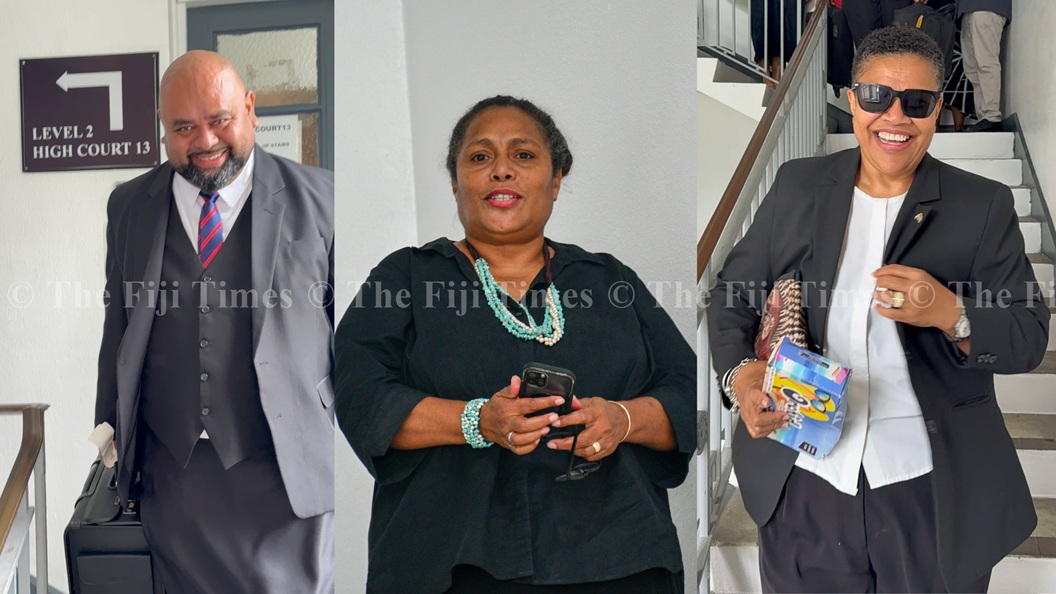The Judicial Services Commission (JSC) and the former attorney-general were both “compromised” by the Commission of Inquiry Report, leaving the Prime Minister as the only lawful and reliable authority to advise the President on the dismissal of former FICAC Commissioner Barbara Malimali.
Lawyers for the State and PM Sitiveni Rabuka submitted this argument to the High Court during the judicial review hearing on Ms Malimali’s sacking.
Simione Valenitabua is representing Mr Rabuka while and deputy state solicitor, Eliesa Tuiloma appeared for President, Ratu Naiqama Lalabalavu and the Attorney-General, Siromi Turaga.
They argued that no other entity was better placed than the Prime Minister to advise the President in such a situation.
Their submissions came after Justice Dane Tuiqereqere questioned the role of the JSC and the Office of the Attorney-General, offices that generally capable of advising the President.
Mr Tuiloma submitted that the President exercised his prerogative powers and that his decision, based on the Prime Minister’s advice, was constitutionally and legislatively valid.
He further argued that “the first route is always the Prime Minister,” and that, because the President’s priority was the public interest, he needed the most reliable person to advise him. In this case, the Prime Minister was the only one left to do so. However, in her 66-page submission, Ms Malimali’s lawyer Tanya Waqanikaargued that the President acted ultra vires (beyond the powers of his office) and stressed that neither he nor anyone else was immune to the rule of law.
Ms Malimali is challenging her removal from office, questioning the legality of the President’s decision to revoke her appointment.
Ms Waqanika contended that the Prime Minister acted unfairly and unreasonably as Ms Malimali was not afforded natural justice.
She argued that the Prime Minister had no role in the appointment of the FICAC Commissioner, and no law granted him the power to advise on the removal of a commissioner.
She submitted that while the Prime Minister may appoint and dismiss ministers, he has no power to revoke or terminate a constitutional officeholder.
The separation of powers, she argued, exists to prevent political interference in constitutional appointments.
If Ms Malimali’s appointment was indeed void, Ms Waqanika said, the correct procedure would have been for the JSC to advise the President to recommend the formation of a tribunal, as was done in the previous cases of constitutional officeholders, Kamal Kumar and Christopher Pryde. She argued that this proper procedure was bypassed in Ms Malimali’s case because the PM was unwilling to pursue it due to the costs involved.
She further stated that the entire Commission of Inquiry process and its outcome were flawed. The inquiry, she said, stemmed from a complaint lodged by blogger Alex Forwood in April 2024, which was only acted upon by former acting FICAC commissioner, Frances Pulewai after Ms Malimali’s appointment.
Additionally, Ms Waqanika submitted that the manner of Ms Malimali’s termination and the actions of both the PM and the President amounted to a constitutional crisis.
Meanwhile, Mr Valenitabu argued that the Prime Minister, as a “minister” under Section 82 of the Constitution, is empowered to advise the President, and that the JSC has no authority to do so as it merely provides recommendations.
He added that the Constitution did not specify procedures for the JSC, Prime Minister or President to follow when an appointment is called into question, creating what he described as a constitutional gap or crisis.
He said the Prime Minister is authorised to advise the President, who could then decide whether to act on that advice under his prerogative powers. By applying Section 44 of the Interpretation Act, he argued, the President had the power to revoke and remove.
When asked why the Prime Minister did not refer the matter to the Constitutional Offices Commission (COC), Mr Valenitabua responded that he was the head of Government, head of Cabinet, a minister, and head of the COC.
Justice Tuiqereqere is expected to deliver his ruling on January 23, 2026.



